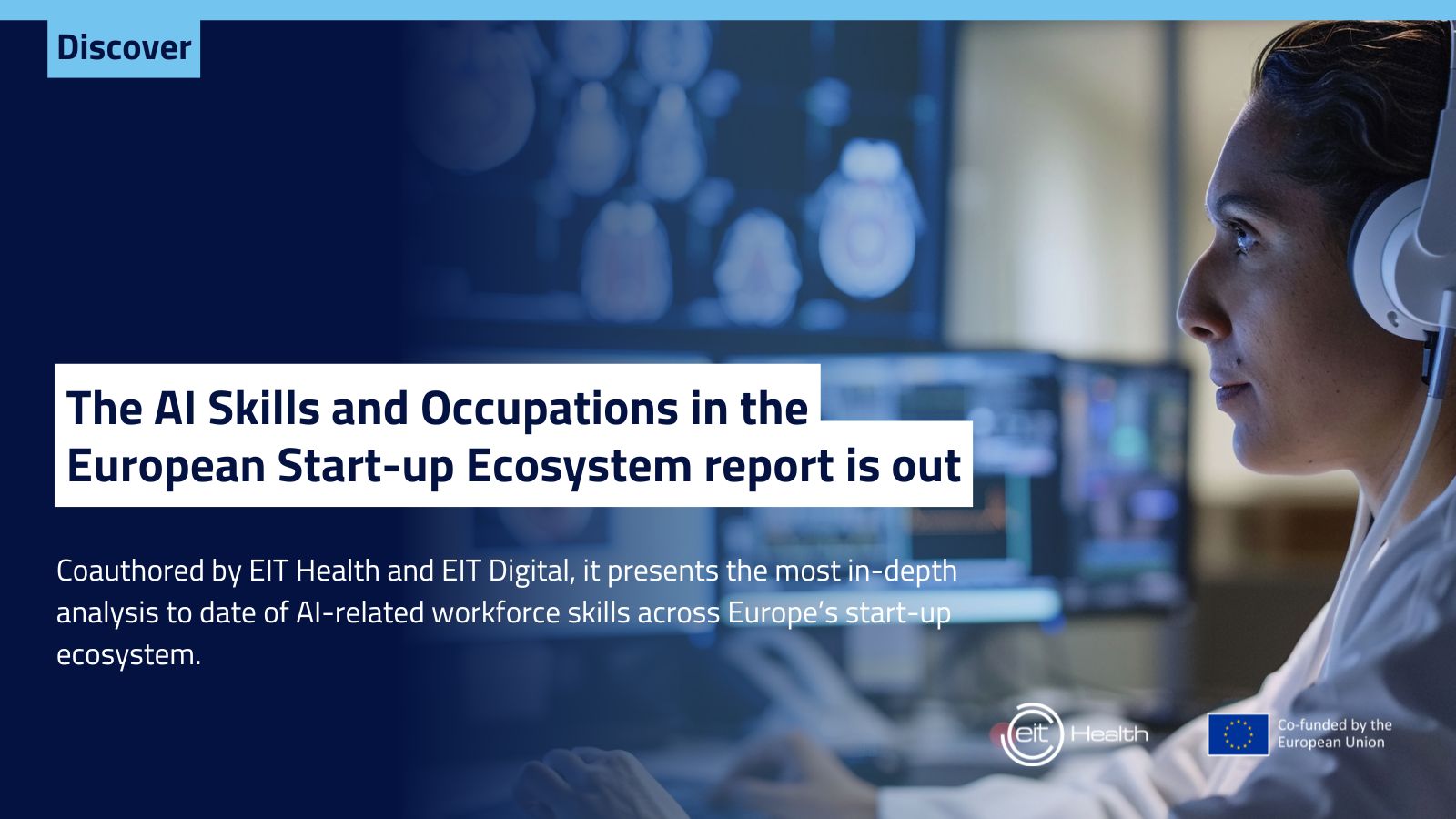EIT Health and EIT Digital Report: AI Innovation Demands Broad Skillsets

A groundbreaking new report co-authored by EIT Health and EIT Digital reveals that Europe’s leading artificial intelligence (AI) startups are not driven by coding skills alone – they thrive on a mix of deep sector expertise and interdisciplinary soft skills.
The report includes regional data, key policy recommendations and insights to support AI workforce development across Europe’s healthcare and innovation sectors.
What the Report Found
The AI Skills and Occupations in the European Start-up Ecosystem report, powered by EIT Health’s SkillSync platform, analyses the skillsets of over 23 000 professionals across 3 600 AI startups. While strong foundations in programming and machine learning are widespread, the report highlights that startups combining technical know-how with sector-specific knowledge (e.g. in healthcare, engineering or manufacturing) – and crucial soft skills such as communication and project management – are more likely to contribute to regional innovation.
Competence in general IT skills alone does not drive innovation. To truly unlock AI’s potential, we need to go beyond just digital skills and cultivate advanced, interdisciplinary capabilities that reflect the real-world needs and opportunities of each sector
Dr Magí Lluch-Ariet, Data Manager at EIT Health
Supporting Europe’s AI Ambitions
This message aligns with Europe’s broader ambition to lead in AI, especially as the European Commission’s AI Continent Action Plan gains traction. The report’s findings offer data-driven recommendations for upskilling and aligning educational strategies across regions. As Europe’s largest innovation ecosystem, the EIT has already trained 1.3 million learners and supported nearly 10 000 ventures, making it a key driver of skills development in AI and beyond.
Key Insights From the Report
- Healthcare and engineering skills boost performance – regions with interdisciplinary capabilities consistently outperform others with similar technical baselines.
- Soft skills and sector understanding matter – particularly in underperforming regions, these are often the missing link in innovation.
- Regulatory and audiovisual expertise is underrepresented – these areas remain critical bottlenecks in AI adoption, particularly in healthcare.
The report also explores how local skills gaps could be addressed to drive innovation. For example, startups in Eastern Europe could benefit from a focus on multidisciplinary soft skills and sector-specific expertise. This would allow them to build on their already strong base.in information and communications technology (ICT), which is prevalent in many AI startups, even if not directly correlated with innovation output.
Preparing the Healthcare Workforce
In addition to supporting startups, EIT Health has long explored the implications of AI for the wider healthcare workforce. Its 2020 report, Transforming Healthcare with AI, highlighted the importance of preparing healthcare professionals for digital transformation.
Innovation doesn’t happen in isolation. At EIT Health, we see through our programmes that real impact comes from bringing education, research and business together in practical ways. This report reinforces that it’s not just about connecting these sectors – but about enabling the flow of skills between them. Whether it’s AI in healthcare or other cutting-edge technologies, the most successful innovations are driven by diverse, applied capabilities – technical, scientific, managerial – that our programmes are designed to nurture and deliver
Graham Armitage, Director of Delivery at EIT Health


 Share this page
Share this page


